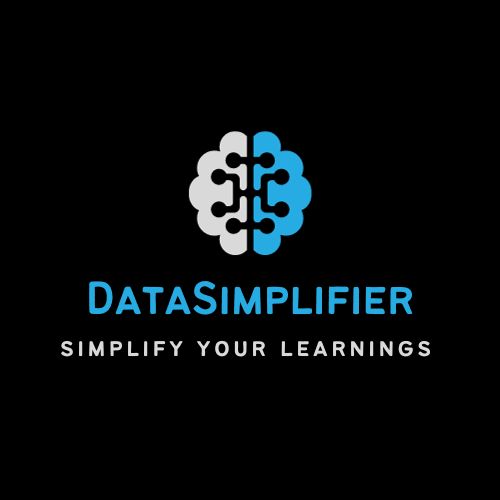Introduction
Artificial intelligence (AI) is no longer a concept of the future—it is transforming industries and addressing complex challenges today. From revolutionizing healthcare to solving mysteries in protein science, AI is a powerful tool driving innovation and productivity. Its synergy with data science serves as the backbone for groundbreaking advancements, reshaping industries across the globe.(How AI Is Revolutionizing Science)

This ultimate guide explores how AI has transformed protein science, enhanced the food industry, and redefined healthcare. Additionally, we delve into AI’s historical evolution, its synergy with data science, and how it boosts productivity across various sectors. Whether you’re a student preparing for interviews or a professional advancing your career, this guide offers actionable insights into the transformative power of AI.
How AI Revolutionized Protein Science
1. Predicting Protein Structures
AI has revolutionized protein science by enabling accurate predictions of protein structures. DeepMind’s AlphaFold, for instance, solves complex protein-folding puzzles, expediting drug discovery for diseases like Alzheimer’s and Parkinson’s.
2. Simplifying and Accelerating Drug Discovery
Pharmaceutical companies leverage AI to screen millions of compounds, reducing drug discovery timelines from years to months. AI-driven platforms uncover protein behaviors and interactions that were previously unimaginable.
3. Advancing Precision Medicine
AI facilitates personalized treatments by analyzing individual protein profiles, tailoring therapies to unique biological makeups. This innovation enhances treatment efficacy and improves patient outcomes.
AI in the Food Industry: Driving Efficiency and Innovation
1. Improving Crop Efficiency
AI-powered drones and sensors monitor soil health, predict weather patterns, and optimize irrigation schedules. This ensures higher yields while minimizing resource wastage.

2. Enhancing Food Safety
AI algorithms detect contaminants in food products with high accuracy. For instance, IBM uses AI to trace food origins and mitigate contamination risks.
3. Reducing Food Wastage
AI predicts consumer demand trends, curbing overproduction and reducing spoilage. Supermarkets optimize inventory management using AI-driven analytics.
4. Innovating Food Production
AI supports the development of plant-based and lab-grown meat alternatives, addressing environmental concerns and catering to conscious consumers.
Synergy Between AI and Data Science
1. Data as the Foundation (How AI Is Revolutionizing Science)
Data science powers AI by curating and structuring massive datasets, enabling AI algorithms to perform complex tasks such as self-driving cars and medical imaging.
2. Building AI Models
Frameworks like TensorFlow and PyTorch empower data scientists to build, train, and deploy AI models for applications like image recognition and natural language processing.
3. Turning Insights into Action
AI and data science transform raw data into actionable insights. For instance, e-commerce platforms utilize AI to recommend products, optimize logistics, and enhance customer experiences.
The Evolution of AI: From Concepts to Reality
1. Rule-Based Systems (1950s–1980s)
Early AI relied on rigid, rule-based systems, which lacked adaptability but laid the groundwork for future advancements.
2. The Era of Machine Learning (1990s–2000s)
Machine learning enabled AI to learn from data, powering applications like spam filters, fraud detection, and recommendation systems.

3. Deep Learning Revolution (2010s–Present)
Deep learning, powered by neural networks and large-scale datasets, drives innovations in autonomous driving, language translation, and image recognition.
How AI Is Revolutionizing Healthcare
1. Advanced Diagnostics
AI outperforms human radiologists in diagnosing diseases like cancer through medical image analysis, enabling early detection and improved survival rates.
2. Remote Patient Monitoring
AI-powered wearables monitor vital signs in real time, proving invaluable for chronic conditions like diabetes and hypertension.
3. Streamlining Healthcare Processes
Hospitals use AI for scheduling, resource allocation, and patient record management, allowing healthcare providers to focus on patient care.
AI’s Role in Scientific Innovation
1. Advancing Astronomy
AI processes astronomical data to study star formation and unravel the universe’s origins.
2. Tackling Climate Change
AI predicts weather patterns, assesses climate change impacts, and supports strategies to mitigate environmental challenges.
3. Revolutionizing Materials Science
AI discovers novel materials with groundbreaking properties, transforming industries like aerospace and construction.
Enhancing Productivity with AI
1. Automating Repetitive Tasks
Robotic Process Automation (RPA) eliminates mundane tasks, enabling workers to focus on creative and strategic activities.

2. Improving Decision-Making
Predictive analytics powered by AI helps businesses make data-driven decisions, such as identifying investment opportunities or managing risks.
3. Time Management Tools
AI-enabled tools like Notion and Monday.com streamline workflows, enhance collaboration, and ensure punctuality.
Conclusion: Embracing AI for a Better Future
AI is not just a technological revolution—it is a transformative force across industries. From solving challenges in protein science and healthcare to optimizing food production and boosting productivity, AI shapes our present and future.
For students and professionals in AI and data analytics, continuous learning is key to staying ahead. Join our Telegram channels for free job notifications, career advice, and insights into the latest industry trends. Comment your Telegram channel below to receive an exclusive invite to our premium group for mentorship and resources. Let’s shape the future of AI together!
Share the post with your friends

1 thought on “How AI Is Revolutionizing Science: Unlocking Breakthroughs Across Best Industries”